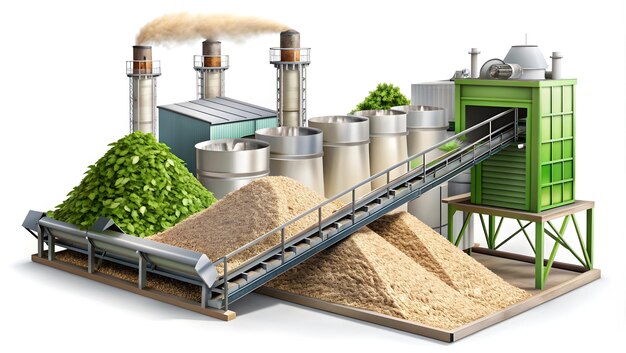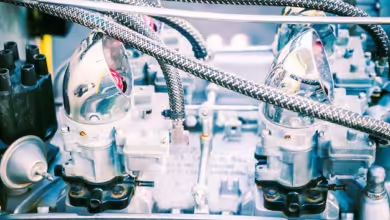China Fertilizer manufacturer

China is one of the largest producers and consumers of fertilizers globally. The fertilizer industry in China plays a crucial role in supporting the country’s vast agricultural sector. This guide provides an in-depth look at China’s fertilizer manufacturers, the types of fertilizers produced, market dynamics, key players, technological advancements, and future prospects.
Introduction to China’s Fertilizer Industry
The fertilizer industry in China Fertilizer manufacturer over the past decades. Initially, the industry was characterized by small-scale operations and limited production capacities. However, with increased demand for agricultural products and government support, China has developed a robust fertilizer manufacturing sector. Today, the country is a leader in fertilizer production, with a wide variety of products catering to both domestic and international markets.
China’s fertilizer industry supports its agricultural needs, focusing on enhancing crop yields and improving soil quality. The industry is marked by its diversity in the types of fertilizers produced, including nitrogen, phosphate, potash, and compound fertilizers.
Types of Fertilizers Produced in China
- Nitrogen-Based Fertilizers: Nitrogen fertilizers are essential for plant growth and are among the most commonly produced fertilizers in China. They include products such as urea, ammonium nitrate, and ammonium sulfate. These fertilizers are critical for cereals like wheat and rice, which form the staple diet in China.
- Phosphate-Based Fertilizers: Phosphate fertilizers provide phosphorus, another key nutrient required for plant development. China’s production of phosphate fertilizers, including superphosphate and diammonium phosphate (DAP), caters extensively to the agricultural sector, enhancing root development and crop maturation.
- Potash Fertilizers: Potash is essential for improving plant resilience against diseases and harsh weather. Potassium chloride and potassium sulfate are the primary potash fertilizers produced in China, significantly influencing crop quality and yield.
- Compound Fertilizers: These fertilizers contain a balanced mix of nitrogen, phosphorus, and potassium (NPK), catering to various crop needs. They are highly popular among farmers due to their convenience and effectiveness in delivering multiple nutrients simultaneously.
Key Fertilizer Manufacturers in China
China’s fertilizer industry is dominated by several large manufacturers, many of which have extensive production capabilities and a strong market presence both domestically and internationally. Key players include:
- Sinofert Holdings Limited: One of the largest fertilizer distributors in China, Sinofert supplies a wide range of fertilizers, including nitrogen, phosphate, potash, and compound fertilizers.
- China National Chemical Corporation (ChemChina): A state-owned enterprise involved in the production of various chemical products, including fertilizers. ChemChina’s subsidiaries are some of the biggest players in the fertilizer market.
- Yunnan Yuntianhua International Chemical Co., Ltd.: Known for its phosphate-based fertilizers, Yuntianhua is a major player in the global fertilizer market, with a significant export footprint.
- China BlueChemical Ltd.: Specializing in nitrogen-based fertilizers, China BlueChemical is another prominent player with substantial production capacities.
These companies have extensive distribution networks, allowing them to serve both local farmers and international markets efficiently.
Production Capacity and Output
China’s fertilizer production capacity is vast, with numerous facilities spread across the country. The production output varies depending on the type of fertilizer and the regional demand. For instance, nitrogen fertilizers have the highest production volumes due to their widespread use in cereal cultivation. The coastal regions of China, such as Shandong and Jiangsu, host some of the largest production facilities, benefiting from proximity to ports and shipping routes for export.
Annual production statistics indicate a steady increase in output over the years, with significant contributions from both state-owned and private enterprises. The industry is characterized by large-scale operations with advanced production technologies that enhance efficiency and reduce costs.
Export Market and Global Reach
China is not only a major producer but also a significant exporter of fertilizers. The primary export markets for Chinese fertilizers include countries in Southeast Asia, Africa, and Latin America. The global reach of China’s fertilizer exports is facilitated by competitive pricing and the ability to produce a wide range of fertilizer types tailored to different agricultural needs.
Chinese fertilizer manufacturers are known for their ability to meet international quality standards, which helps in expanding their footprint in various global markets. Export regulations and policies are streamlined to encourage international trade, making Chinese fertilizers a preferred choice for many countries.
Innovations and Technologies in Fertilizer Manufacturing
The Chinese fertilizer industry has witnessed considerable advancements in technology, particularly in the production process. Modern technologies are employed to enhance efficiency, reduce environmental impact, and improve product quality. Innovations such as precision agriculture and smart fertilizers, which release nutrients in a controlled manner, are gaining traction.
Research and development are pivotal in the industry, with many companies investing in new formulations and sustainable production techniques. This focus on innovation ensures that Chinese manufacturers remain competitive on the global stage and continue to meet the evolving demands of agriculture.
Environmental Impact and Sustainability Practices
Fertilizer production has a significant environmental footprint, especially in terms of greenhouse gas emissions and water usage. Chinese manufacturers are increasingly adopting sustainable practices to mitigate these impacts. Measures such as recycling waste, reducing energy consumption, and implementing cleaner production techniques are becoming standard in the industry.
Government regulations also play a critical role in encouraging sustainable practices. Companies are required to comply with environmental standards, and there is a growing emphasis on reducing the carbon footprint of fertilizer production.
Government Policies and Regulations
The Chinese government has implemented a series of policies to regulate the fertilizer industry, ensuring stable growth and environmental sustainability. These policies include subsidies for fertilizer production, tax incentives, and regulations on quality control. The government’s role in supporting research and development in the sector is also noteworthy, providing funding for innovation and technological advancements.
Regulations on exports and imports are designed to balance domestic supply with international trade demands, ensuring that the industry remains robust and competitive.
Challenges Facing the Fertilizer Industry in China
Despite its strengths, the Chinese fertilizer industry faces several challenges. Economic challenges such as fluctuating raw material prices and changes in domestic demand can impact profitability. Environmental regulations, while necessary, also pose challenges for manufacturers in terms of compliance and cost.
Another significant challenge is the need for modernization and technological upgrades in older facilities to maintain competitiveness and meet stringent environmental standards. The industry must also address issues related to overcapacity in certain segments, which can lead to inefficiencies.




